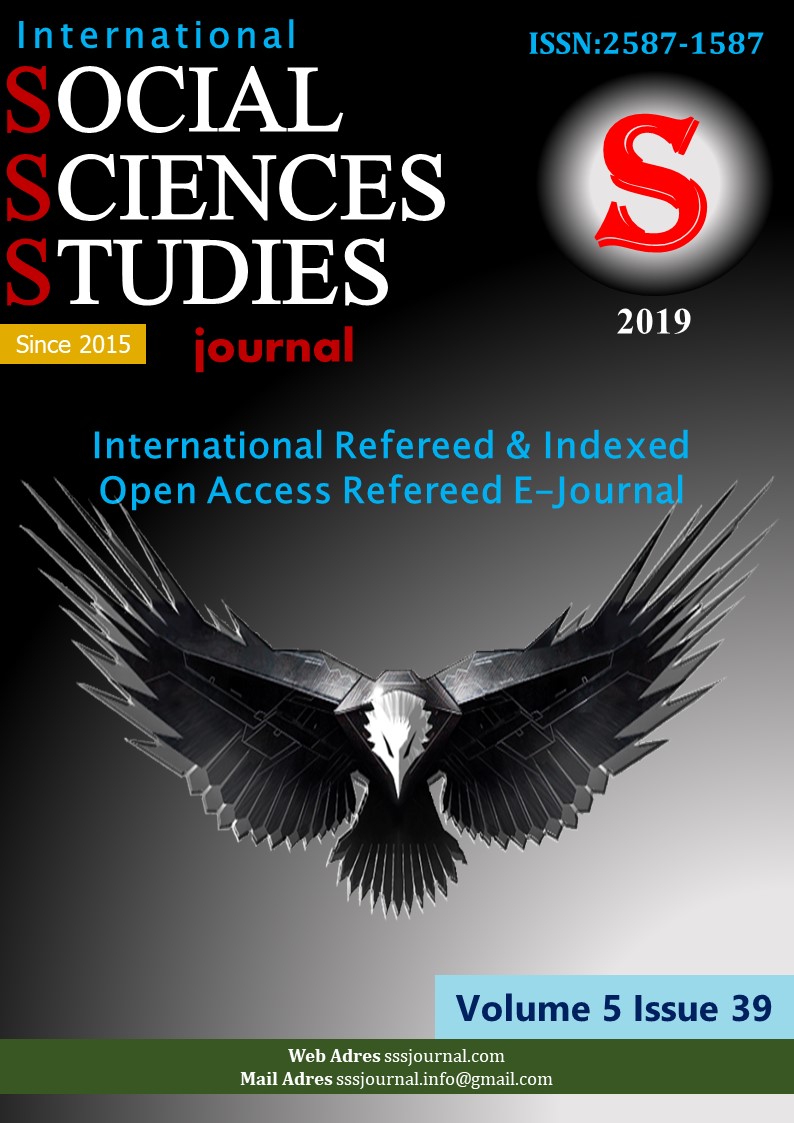Author :
Abstract
İkinci Meşrutiyet sonrası yaşanan gelişmeler önce İttihat ve Terakki Fırkasının programına, ardından da ülke siyasetine yansıyan liberal iktisat anlayışının hayata geçmesiyle sonuçlanmıştı. Bu anlayış, kapalı bir ekonomik anlayıştan kurtarılması gereken toplumun refaha ulaşabilmesi yolunda önemli bir çıkış olarak görülmüştü. Liberal karakterli bu politik ve ekonomik söylem, yaşanan Balkan faciası yıllarında ayrılıkçı hareketlerin hız kazanması ile birlikte önemli ölçüde başarısızlığa uğramış, kısa süre içerisinde partinin ekonomik anlayışında önemli değişikliklere gidilmesine yol açmıştı. Böylece Müslüman Türk unsurunun şirket kurmaya teşvik edilmesi ana hedeflerden biri haline gelmişti. «Millî» şirketlerin kuruluşuna fiilen ön ayak olmaya başlayan parti teşkilatı, toplumu örgütleyerek ticarette millî bir iktisat anlayışın doğuşuna ortam hazırlamıştı. İttihat ve Terakki’nin savaş yıllarında izlediği iktisadi milliyetçilik ve bunun bir sonucu olarak gelişen politikalar, Osmanlı ticaret burjuvazisi içindeki gayrimüslim unsurun etkinliğinin kırılmasına ve iç ve dış ticaretin önemli ölçüde Müslüman Türk unsurun hakimiyeti altına girmeye başlamasına yol açtı. Bu makalede Anadolu’da hâkim unsura dayalı bir burjuvazi tipinin gelişmesine katkı sağlamak amacıyla kurulan Osmanlı İtibar-ı Millî Bankası (1917) ile ilgili bir değerlendirme yapılmış ve söz konusu bankanın kuruluş aşamasındaki tartışmalardan başlayıp Cumhuriyet döneminde İş Bankasına eklenmesine kadarki süreç değerlendirilmiştir.
Keywords
Abstract
The developments after the Second Constitutional Monarchy first resulted in the implementation of the liberal economic approach which was reflected in the program of the Committee of Union and Progress and then in the politics of the country. This understanding was seen as an important way out of the welfare of the society, which had to be saved from a closed economic understanding. This liberal and political rhetoric failed to a great extent as separatist movements gained momentum during the years of the Balkan disaster and led to significant changes in the economic understanding of the party in a short period of time. Thus, encouraging the Muslim Turkish element to establish a company became one of the main objectives. The party organization, which had begun to actively pave the way for the establishment of «national» companies, organized the society and prepared the environment for the emergence of a national economic understanding in trade. The economic nationalism followed by the Committee of Union and Progress during the war years and the policies developed as a result of this led to the disruption of the effectiveness of the non-Muslim element within the Ottoman trade bourgeoisie and the domination of domestic and foreign trade to a significant extent by the Muslim Turkish element. In this article, an evaluation was made about the İtibar-ı Milli Bankasi (National Credit Bank) (1917), which was established in order to contribute to the development of a bourgeoisie type based on the dominant element in Anatolia, and the process from the debates during the foundation phase of the bank to the İş Bankası (Work Bank or the Business Bank) was evaluated.
Keywords
- Ahmad Feroz, İttihatçılıktan Kemalizm’e, (çev., Fatmagül Berktay) 3. Basım, İstanbul, 1996.
- Balcı, Ramazan-İbrahim Sırma, Memalik-i Osmaniye’de Anonim Şirketler, İstanbul Ticaret Odası, Ekonomi ve Sosyal Tarih Yayınları, İstanbul 2012.
- Boratav, Korkut, Türkiye İktisat Tarihi 1908-2002, 7. Baskı, Ankara, 2003.
- Edhem Eldem, Bankonets of The Imperial Ottoman Bank (1863-1914) Ottoman Bank AŞ. İstanbul 1999.
- Ethem Eldem, Osmanlı Bankası Tarihi, (çev. Ayşe Berktay) Türkiye Ekonomik ve Toplumsal Tarih Vakfı Yay., İstanbul 1999.
- Heyd, Uriel, Türk Ulusçuluğunun Temelleri, (çev. Kadir Günay), Ankara, 2002.
- “Maliye Naziri Cavit Bey’in Notları”, Tanin 20 Ocak 1945.
- “Maliye Nazırı Cavit Bey’in Notları”, Tanin, 4 Şubat 1945.
- “Maliye Naziri Cavit Bey’in Notları”, Tanin, 4 Nisan 1945.
- Mardin Şerif, “Tanzimat’tan Cumhuriyet’e İktisadi Düşüncenin Gelişmesi”, Tanzimat’tan Cumhuriyet’e Türkiye Ansiklopedisi, C.III, İstanbul, 1985.
- Ökçün, A. Gündüz, “1909-1930 Yılları Arasında Anonim Şirket Olarak Kurulan Bankalar”, Türkiye İktisat Kongresi Semineri (10 Haziran 1973), Ed. Osman Okyar, Hacettepe Üniversitesi Yay.; Ankara 1975.
- Osmanlı Dönemi Borsa ve Mali Sistemi, Borsa Ticaret Araştırmaları yay., İstanbul 1990.
- Ozan Arslan, “Birinci Dünya Savaşı Başında Kapitülasyonların İttihat Terakki Tarafından Kaldırılması ve bu Gelişmeler Karşısında Büyük Güçlerin Tepkileri,” Sakarya Üniversitesi Fen-Edebiyat Fakültesi Dergisi, S. 10, nr. 1, 2008, (s.261 – 278).
- Tekeli, İlhan-Selim İlkin, Para ve Kredi Sisteminin Oluşumunda Bir Aşama Türkiye Cumhuriyeti Merkez Bankası, 50. Yıl Kuruluş Armağanı Türkiye Cumhuriyeti Merkez Bankası, Ankara 1981.
- Tunaya, Tarık Zafer, Türkiye’de Siyasal Partiler, C. I, Hürriyet Vakfı Yay, 2. bs., İstanbul 1984.
- Toprak, Zafer, Türkiye’de Millî İktisat (1908-1918), Yurt yay. Ankara 1982.
- Toprak, Zafer, Millî İktisat-Millî Burjuvazi, Tarih Vakfı yay., İstanbul, 1995.
- Eldem, Vedat, Harp ve Mütareke Yıllarında Osmanlı İmparatorluğu’nun Ekonomisi, Ankara, 1994.
- Yalçın, Hüseyin Cahit, Siyasal Anılar, Türkiye İş Bankası Kültür Yayınları İstanbul 1976.
